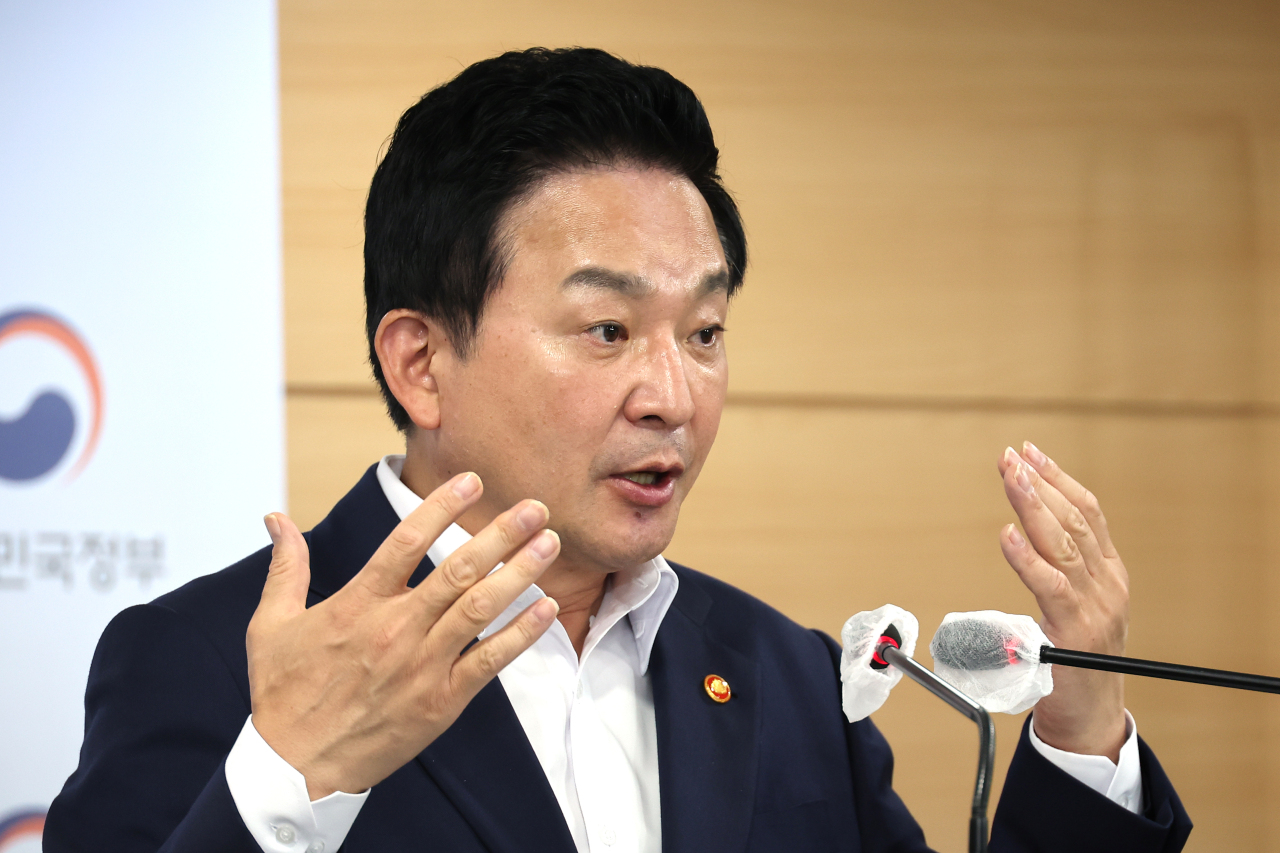 |
South Korea’s Transport Minister Won Hee-ryong (Yonhap) |
South Korea’s Transport Minister Won Hee-ryong said on Sunday evening that the country could consider implementing ride-sharing services like Uber to fight off the country’s dire nighttime taxi shortage.
During a speech posted to his personal YouTube channel, Won said the government would first try other measures to relieve the taxi shortage and, if unsolved, may introduce car- and ride-sharing services as “last resort.”
Uber entered South Korea in 2013, but withdrew after two years after being in conflict with the Seoul Metropolitan Government, which defined it as an “illegal call taxi.”
According to Won, the country has been suffering from a shortage of taxi drivers, who switched to delivery services during the COVID-19 pandemic. Won said the operation rate of taxi operators has gone down by some 30 percent due to the shortage of taxi drivers.
To put more drivers behind the wheel and more taxis on the road, Won said the central government will first talk with local governments, including Seoul and Gyeonggi Province, to temporarily lift the three-shift system, in which private cabs have to take every third day off.
Won argued that lifting of the system will give taxi drivers an option to operate with more flexibility.
The government is also considering offering incentives to late-night taxi drivers. Won said the government can increase the basic cab fare and surcharges for taxis operating late at night.
Currently, Seoul’s basic cab fare is 3,800 won ($2.90) and increases by increments of 100 won.
If those measures fail, the government will have to consider preventing taxi drivers from choosing passengers based on their destinations, Won said.
Won said that taxi drivers still pick and choose their customers, preferring to give rides to those who travel long distances since charges are added depending on the distance and time covered. Meanwhile, drivers intentionally avoid passengers who travel short distances for the same reason.
Won said passengers will be able to catch rides more easily than now if their destinations are hidden from drivers.
“There is no need to issue taxi transportation business licenses to (taxi operators), if they don’t supply,” Won said.
If the measures all fail to relieve the ongoing taxi shortage at night, the government then may consider implementing other types of transportation, Won noted.
Won said that introduction of ride-share services, such as Uber, is, however, a last resort, and that the government and the taxi industry can settle the issue amicably, before the government starts to consider introducing ride-share services.
By Shim Woo-hyun (
ws@heraldcorp.com)








